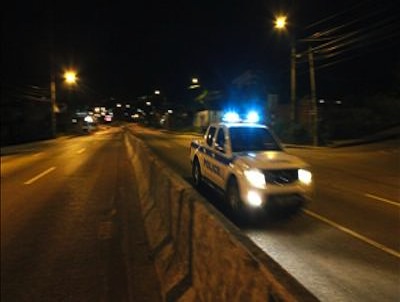
29 Aug Stereotypes and Society: The View from a Hot Spot
 When I wrote my article about Morvant two weeks ago, my fervent hope was that there was no new spate of crime in Morvant for people to use as an excuse to negate the beauty of the place that I call home. Unfortunately, this current state of emergency has placed my hometown squarely back into the consciousness of the public as being simply a crime ‘hot spot’.
When I wrote my article about Morvant two weeks ago, my fervent hope was that there was no new spate of crime in Morvant for people to use as an excuse to negate the beauty of the place that I call home. Unfortunately, this current state of emergency has placed my hometown squarely back into the consciousness of the public as being simply a crime ‘hot spot’.
During this past week I have gone through a roller coaster of emotions, as a citizen who just happens to live in a ‘hot spot’ that has had that reputation since time immemorial. As a person who gets up, goes to school and tries her best to live her life within the rule of law, I am just as frustrated as the rest of the populace with the crime situation. To the point just before the State of Emergency was declared, I was so overwhelmed by news reports about crime that I would simply go numb. In many ways, I felt that the proclamation meant, at least, that the Government was doing something about it. I hear many people echoing those same sentiments.
However, as the week wore on, other feelings began to surface. As I began to see the news of the raids and arrests being made, mainly in certain ‘hot spots’, including my community, and not others, I began to wonder. I began to feel the annoyance and helplessness that I had felt when I hear society only stereotype the people who live in Morvant – my neighbours, my relatives, the people I see every day – as all being criminals. I began to feel a bit of the hopelessness that so many of the young people in my areas feel. I began to ask myself what is the use of doing the right thing when no matter how you try, by dint of where you live, you will be stereotyped, and in these turbulent times possibly that you are a target. Even though I know that I will continue to obey the law, because that is how I was raised, I also still admit to having these gut-level feelings.
I still maintain the view that the vast majority of people where I live are simply like you and me – getting up, going to work or school, obeying the law, trying to survive. However, when you hear the authorities dismiss the fact that many of those people’s livelihoods are being affected by the State of Emergency, it leads you to wonder if they don’t realize that the people in these areas are just as much citizens as anyone else in Trinidad. They include the people who serve you in restaurants, pharmacies, retail outlets, and supermarkets, the people who vend goods to you at night, and the security guards who guard you. They are also the Government and private sector workers whose lives are disrupted because of this measure. They are the people whose lives and jobs are just as essential to the running of society, as the politicians. In short, they are human beings.
One of the most poignant things I heard this past week was someone who said that in the midst of all that is happening, let us not forget our humanity. It may seem like at first, a soft approach to the situation that is in progress, but I think that person was on the money. When we, as a society, begin to stereotype a community, it is easy to forget that communities are made up of families, friends, mothers, daughters, fathers, and sons. It is so much easier to lump the people from Morvant into people who are either harbouring criminals or are criminals themselves. It is easier to say lock them down and flush out the bad boys! Lock up the criminals and throw away the key!
However, after the State of Emergency is done, the communities remain in the same state. The rate of crime may be lowered (for a while), but the environment that allowed the crime to flourish will remain. This is for one simple reason. Morvant is not a place, isolated from society, that is a cancer to be cut out; nor are any of the other perennial ‘hot spots’. Morvant is part of Trinbago, a country where crime, big and small, is flourishing.
Isolating particular areas can only breed nothing but resentment in those who are in those areas because it stereotypes and dehumanizes the people in them. It undermines the very effort to fight overall crime as a society. Until society realizes that Trinbago is made up of human beings who have chosen to contribute to an overall society of lawlessness in ways both big and small, there is no way the crime situation can begin to be solved. Isolating Morvant and other communities like it is simply a quick-fix solution to an enduring human problem.
About Nicole G. Henry
Nicole Henry is currently pursuing a degree in Sociology with a minor in Social Policy at The University of the West Indies. She has a special place in her heart for disability and mental health issues. She also loves to write, and her taste in music ranges from gospel and soft rock to classical, roots and zydeco (Google that). Domiciled in the 'safe' suburb of Morvant, she is seeking to further fund her addiction to Bijoux Terner and Wonderful World merchandise.
Twitter •


No Comments